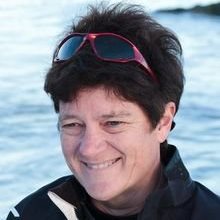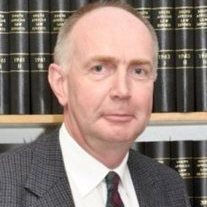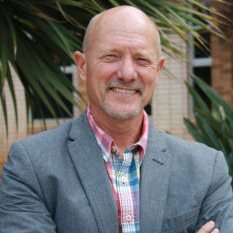Five members of the Institute for Coastal and Marine Research are South African Research Chair Initiative (SARChI) holders. These chairs are in Shallow Water Ecosystems, Law of the Sea and Development in Africa, Marine Spatial Planning, Ocean Cultures and Heritage, and the UK-SA Bilateral Research Chair in Ocean Science and Marine Food Security.
1. SHALLOW WATER ECOSYSTEMS
 Water is a scarce commodity in southern Africa, where many aquatic ecosystems are currently on a trajectory of rapid deterioration. The sustainable use of our water resources, and their rehabilitation where necessary, requires that adaptive management structures are continuously provided with scientific knowledge on the processes that govern aquatic ecosystems and their health.
Water is a scarce commodity in southern Africa, where many aquatic ecosystems are currently on a trajectory of rapid deterioration. The sustainable use of our water resources, and their rehabilitation where necessary, requires that adaptive management structures are continuously provided with scientific knowledge on the processes that govern aquatic ecosystems and their health.
Estuaries, their functioning, conservation and management is the specialist research field of Professor Janine Adams, who has been appointed by the National Research Foundation (NRF) as the Chair Holder for this SARChI Shallow Water Ecosystems until 2023. Professor Adams was the Interim Chair, following Professor Renzo Perissinotto from 2018. She has published over 220 articles in peer-reviewed research journals, and is currently Associate Editor for the international journal Wetlands, and for a special issue on southern hemisphere estuaries and coasts for the journal Estuarine, Coastal and Shelf Science. Her postgraduate training record is excellent: she has successfully supervised over 44 MSc and 24 PhD students throughout her career. She has made a significant contribution to global knowledge on shallow water ecosystems.
This Research Chair's current focus areas are estuary restoration, blue carbon ecosystems and response to climate change, mangrove and salt marsh ecology, and water quality management of estuaries. Professor Adams and her team play an important role in ensuring science and knowledge of aquatic environments is communicated to managers and policymakers. The Chair is involved in collaborative projects with the University of Dar Es Salaam, the University of Rennes, University of Essex, Eduardo Mondlane University, University of Oldenburg, and the University of Wollongong. Locally, the Research Chair works with scientists from a wide range of institutes, including the CSIR, the University of the Western Cape, the South African Institute for Aquatic Biodiversity (SAIAB) and the South African Environmental Observation Network (SAEON). Follow @ShallowWaterRes on Twitter.
2. MARINE SPATIAL PLANNING

Professor Amanda Lombard was awarded the Purcell Memorial Prize for the best Zoological Ph.D. at the University of Cape Town (UCT) in 1989. After post-doctoral work in the USA and Australia, she held academic positions at UCT, NMMU, and the University of Pretoria. She specialises in conservation planning, and has also worked as a consultant in this field for 18 years.
Her early work advanced conservation planning research in South Africa and was instrumental in establishing it as a necessary step in policies to expand and proclaim both terrestrial and marine protected areas. In 2004 she pioneered South Africa's marine conservation planning research and assessments. She is frequently invited to international workshops to advance conservation planning globally, and has supervised over 50 post-graduate students, published over 60 peer-reviewed scientific papers and over 40 consultancy reports. In 2013, Thomson Reuters listed her as one of the six most cited ecologists in South Africa (currently over 6800 citations). She has delivered ten international keynote addresses and has an NRF B2 rating for her research with an H-index of 37 (Google Scholar).
Prof. Lombard is an editor of the journal Consercation Letters and a board member of a number of international and national Centre's of Excellence, Institutions and Committee's. She has a special interest in marine spatial planning for Antarctica and the Southern and Western Indian Oceans, top predators and system dynamics modeling.
The research to be undertaken by the Marine Spatial Planning research group will focus on the following five themes:
-
Strategic strengthening and analysis of knowledge on the spatial and seasonal distribution of marine biodiversity features in coastal, benthic and pelagic environments (where biodiversity features are defined as species, habitats and ecosystem processes);
-
Evaluation of ecosystem services (ecological infrastructure) and developing accounting techniques for the marine environment;
-
Sourcing and collating available baseline biodiversity information to evaluate marine management strategies;
-
Development of predictive spatial models of the outcomes of environmental, and anthropogenic, drivers of change in the marine environment;
-
Using outputs from themes 1 to 4 in a Marine Spatial Planning (MSP) framework to inform policy and management (particularly with regard to marine conservation strategies and adaptive management approaches).
Follow Marine Spatial Planning News Nelson Mandela University on Facebook.
3. LAW OF THE SEA AND DEVELOPMENT IN AFRICA
 Since 1 July 2013, the first incumbent of the Chair is Prof Patrick HG Vrancken who, until then, was the Head of the Department of Public Law at the Nelson Mandela Metropolitan University. During the last 18 months in that position, Prof Vrancken played a leading role in advising SAMSA, other organs of State and the Nelson Mandela University in their efforts to develop the maritime training and research capacity in South Africa. His most recent major research output is a monograph entitled South Africa and the Law of the Sea published in 2011 by Martinus Nijhoff Publishers.
Since 1 July 2013, the first incumbent of the Chair is Prof Patrick HG Vrancken who, until then, was the Head of the Department of Public Law at the Nelson Mandela Metropolitan University. During the last 18 months in that position, Prof Vrancken played a leading role in advising SAMSA, other organs of State and the Nelson Mandela University in their efforts to develop the maritime training and research capacity in South Africa. His most recent major research output is a monograph entitled South Africa and the Law of the Sea published in 2011 by Martinus Nijhoff Publishers.
Research foci include State ocean jurisdiction, the law of the sea in Africa, transnational organised fisheries crime, port law and marine tourism law. Further information can be found on the Chair's official website.
4. OCEAN SCIENCE AND MARINE FOOD SECURITY

The Indian Ocean has many pressing and escalating societal pressures - mostly driven by the massive population (2 billion people) which lives around the equatorial and northern rim and islands. India's population alone increased more than 75% between 1970 and 2000, reaching 1.3 billion people in 2014. The decimating state of both artisinal and industrial fisheries raises serious concerns about food security in this region, especially in light of climate change and a changing global ocean. Indeed, the Indian Ocean is one of the fastest warming ocean basisn and convincing evidence now exists that demonstrates climate change is impacting ocean upwelling - one of the most fundamental and powerful mechanisms in ocean dynamics that underpins the critical supply of nutrients to sustain ecosystems and marine food resources.
Current research investigates the underpinning processes that sustain food security (i.e. ecosystem functioning) with a strong focus on how climate change and a changing global ocean will impact marine upwelling systems in the western Indian Ocean. Investigation of these upwelling systems and their links to food security requires a full multidisciplinary approach from physics to fish to forecasts (security), and encompasses and couples the fields of physical oceanography, biochemistry, plankton, trophic ecology, fisheries and food resources - all quantified by end to end ecosystem and socio-economic modelling.
Prof Roberts' research program called the Western Indian Ocean Upwelling Research Initiative (WIOURI) totally embraces this approach and moreover uses modelling not only to understand, couple and quantify processes, but also to streamline the avenues of multidisciplinary investigation, making the research program more focused on the ultimate deliverable - how and by how much is climate change and a changing ocean going to impact food resources in the WIO. Great emphasis is placed on linking and transferring these research outputs into ocean governance and food security structures including national governmental departments, SAPHIRE, ESA, Nairobi Convention and the FAO. Indeed, the FAO is thoroughly involved in WIOURI as its EAF-Nansen program is a core partner.
5. OCEAN CULTURES AND HERITAGE

Professor Rose Boswell is the former Executive Dean of the Faculty of Arts at the University. The anthropologist, NRF-rated researcher and poet is currently Professor of Ocean Cultures and Heritage at the University’s Ocean Sciences Campus who hopes that the new Chair would contribute to the strategic area of growing the Mandela University footprint on the African continent. “Much of the research that has been done is focused elsewhere in continental Europe and also in Asia,” Prof Boswell has said. In addition to wanting to emphasise Africa, she is also keen to expand the role of the humanities in the oceans economy. Although the focus is often on the natural sciences, social sciences and humanities have a lot to say to policymakers and corporate funders in this field. If the humanities can be given a voice in that space, and there can be more transdisciplinary work, our graduate students can really contribute to Government’s Operation Phakisa.
She hopes the Chair will expand knowledge of the maritime sector in Africa as well as enable the University to pursue regional and global collaborations. In addition to her extensive academic credentials, Prof Boswell has also established an international network of colleagues, which the NRF panel referred to.“Prof Boswell is recognised internationally by various colleagues and by her involvement in international research collaborations,” the NRF report said. “Prof Boswell’s evident competency in her field of anthropology is recognised, and the application of this discipline to the focus area of Oceans’ Cultures and Heritage. Her ability to envisage this research project chair with numerous collaborative alliances and a number of interlinked sites with colleagues is also seen as a strength.”
These connections will be key to the new research drive of a greater role of the Humanities within the Oceans and Coastal Sciences, Prof Boswell believes. “Working with global partners is very important because it expands the network of students and colleagues that you have access to. It also assists in advancing our cognitive understanding,” Prof Boswell said. Her collaborative work includes serving as a co-investigator in the One Ocean Hub (an international programme for collaborative research for development based in the UK), on the committee for the Intercontinental Slavery Museum in Mauritius and a research programme leader in the Community of Practice, Oceans Account Framework project funded by NRF and led by Prof Patrick Vrancken at Nelson Mandela University. Prof Boswell also contributes to the global educational work of the Seychelles Blue Economy Institute and the work of UNESCO in its regional expert consultation series on racism and discrimination.